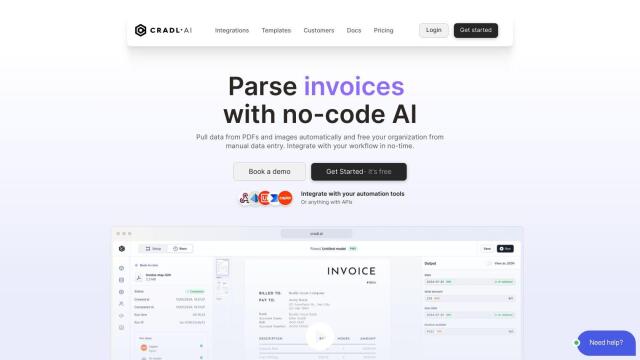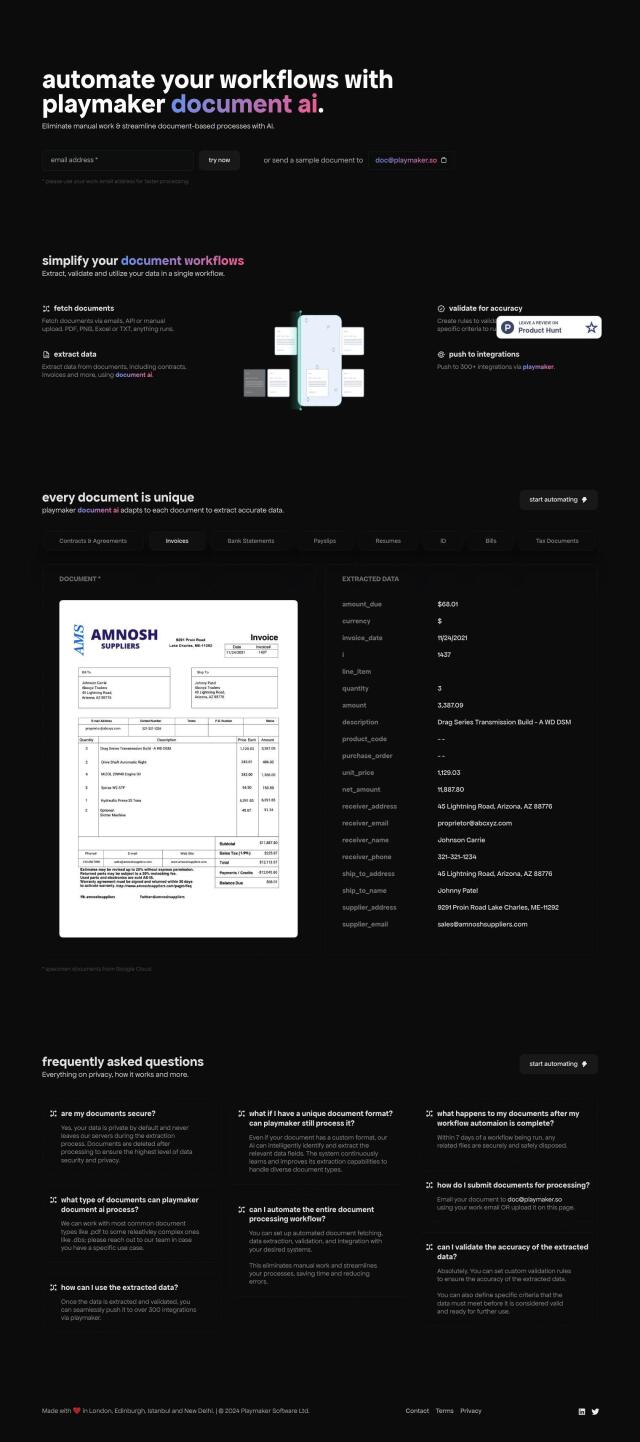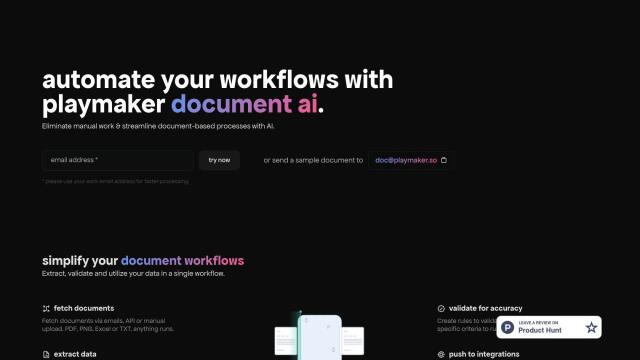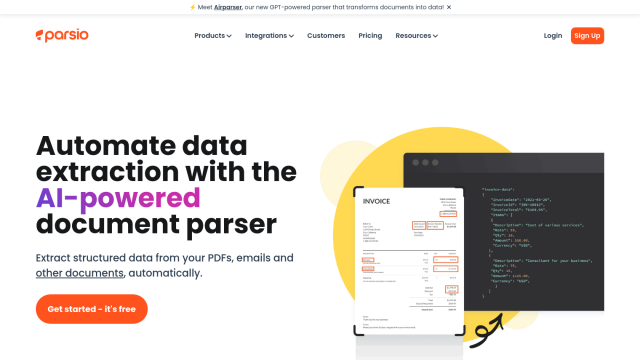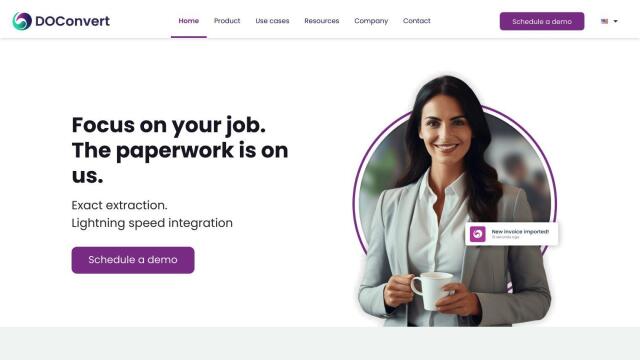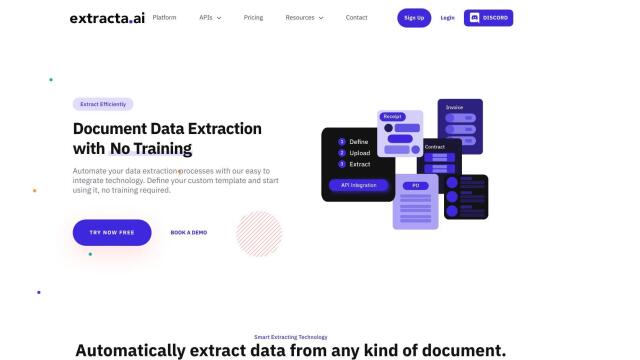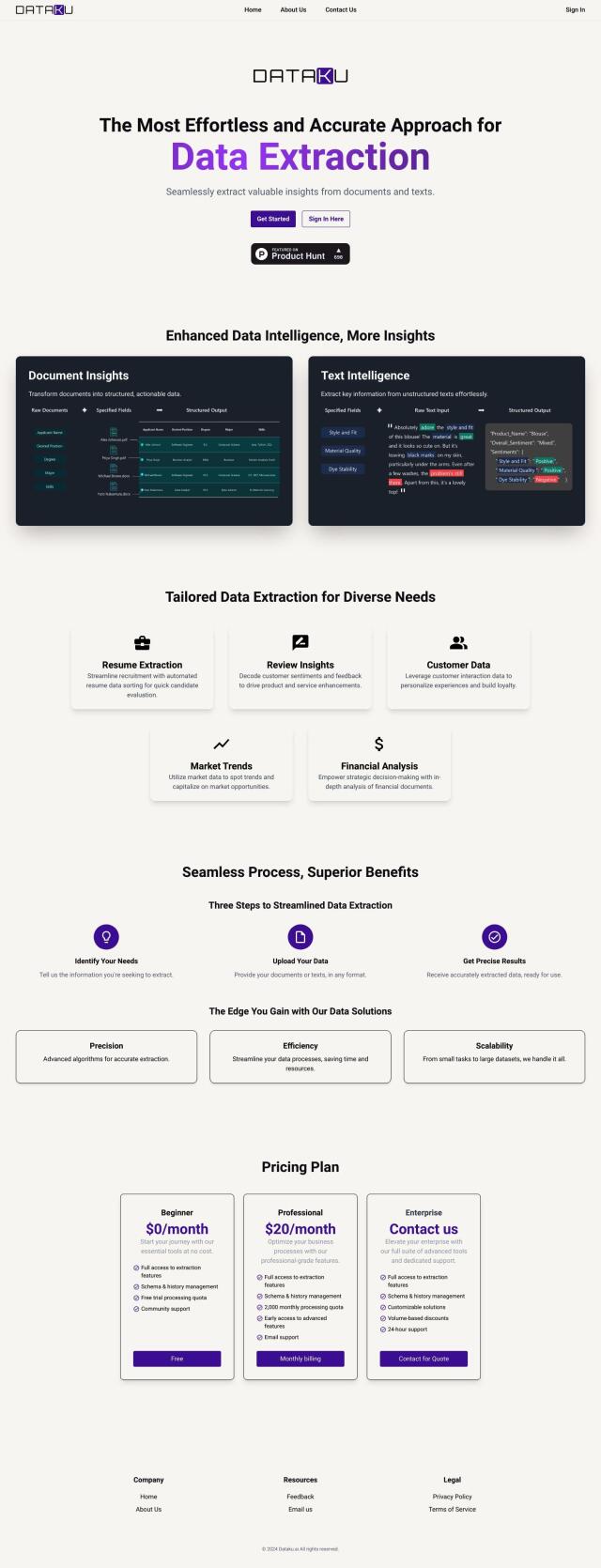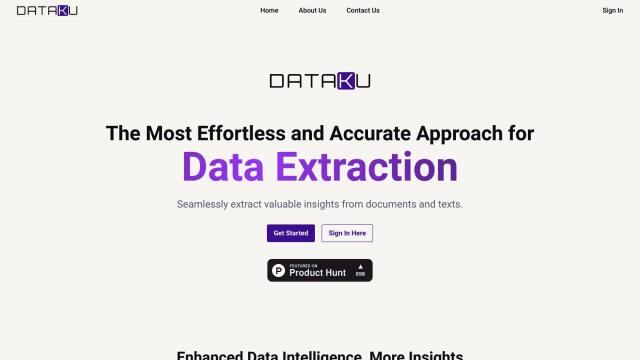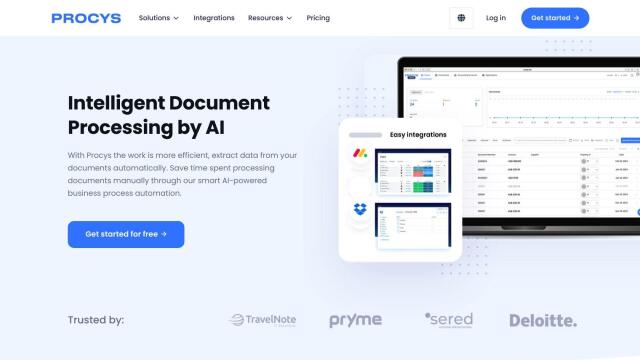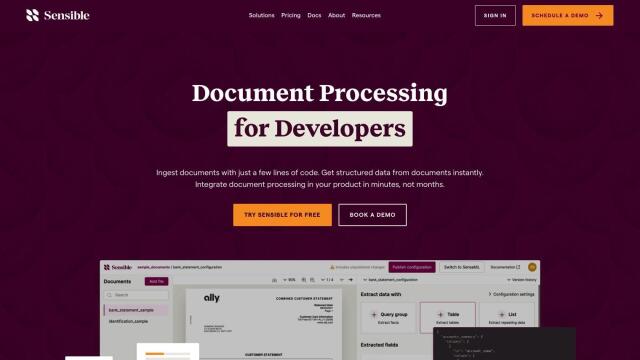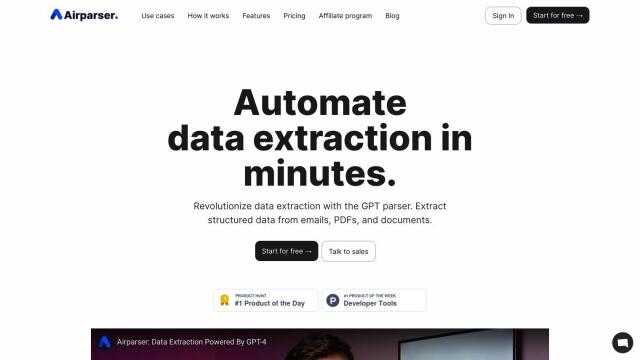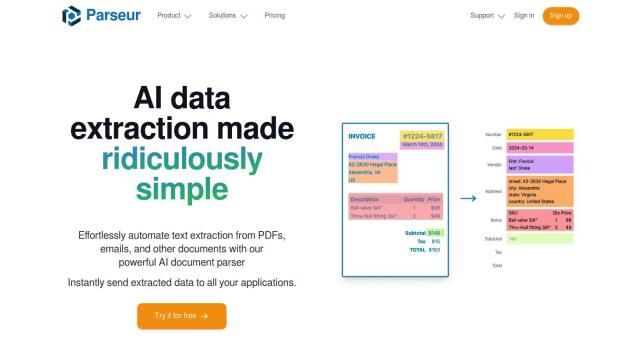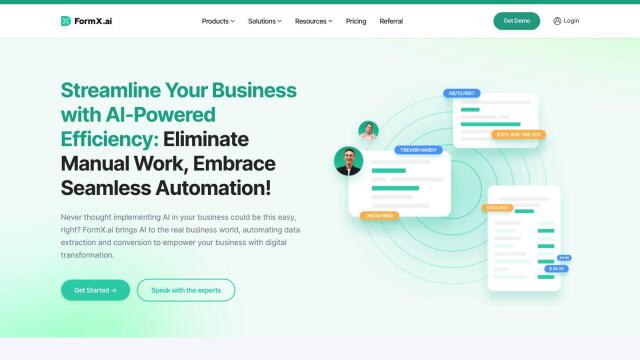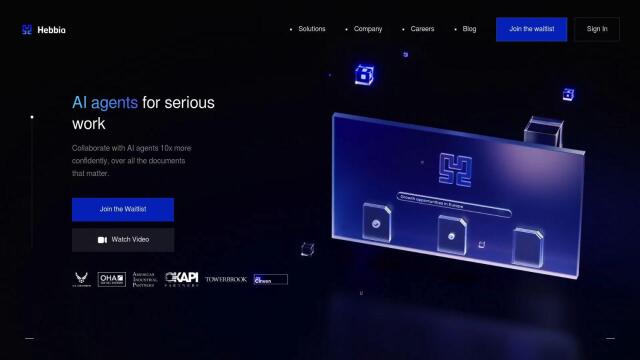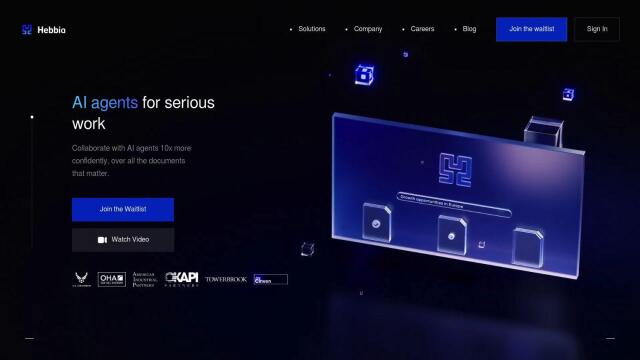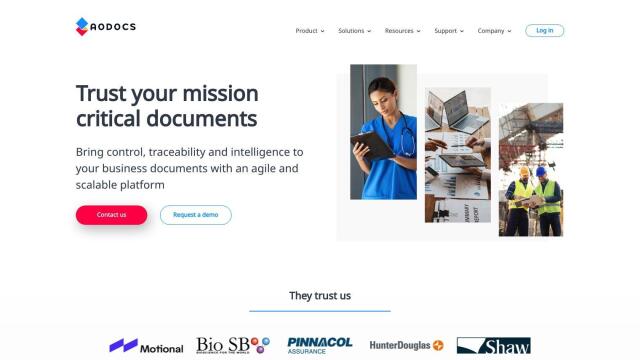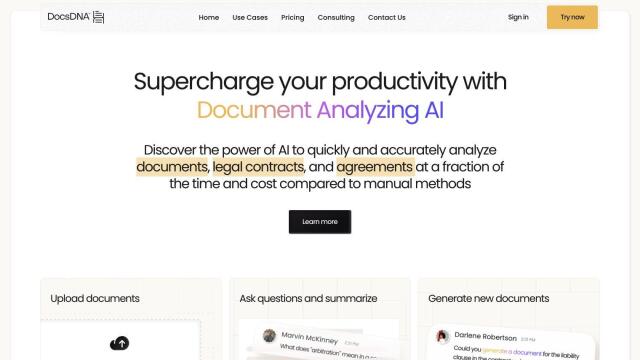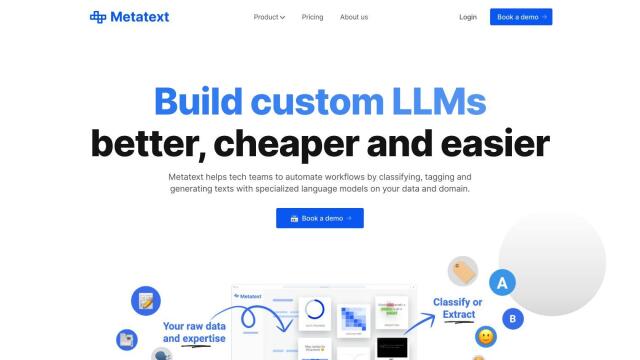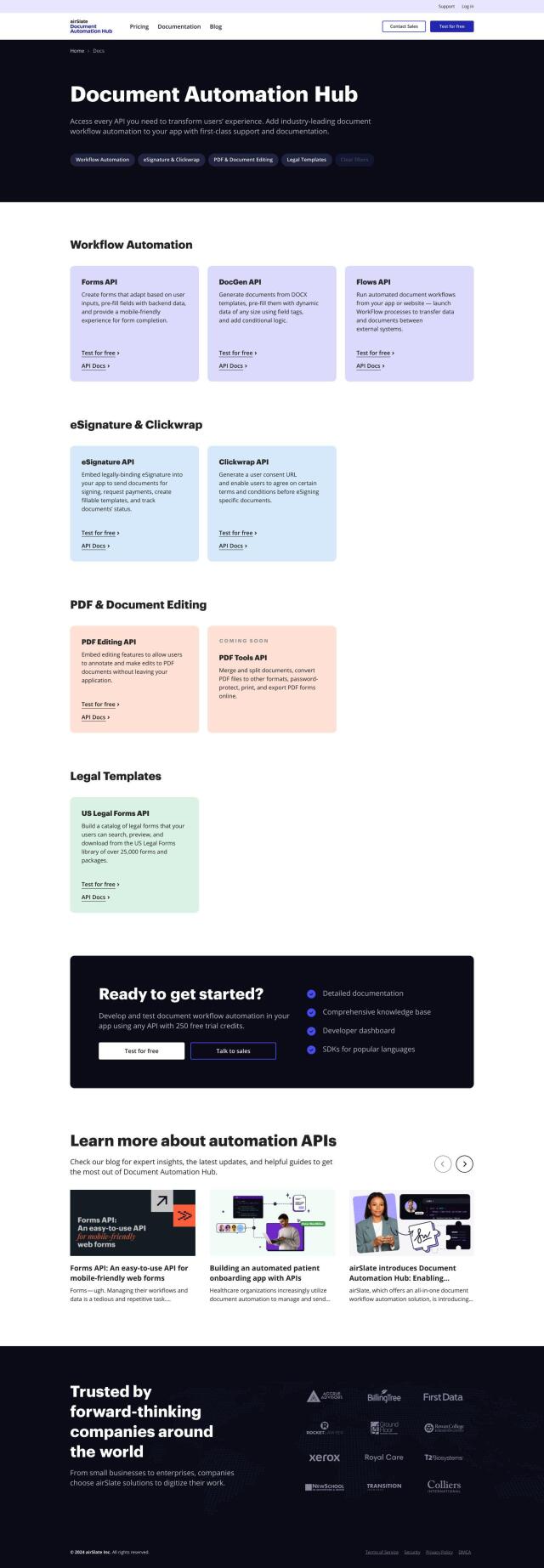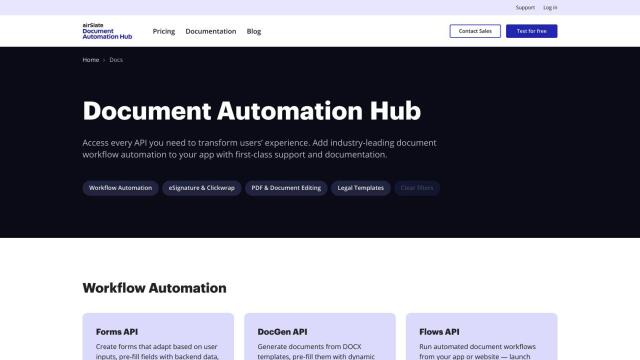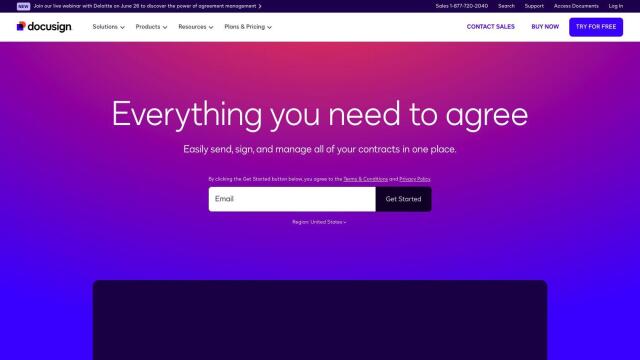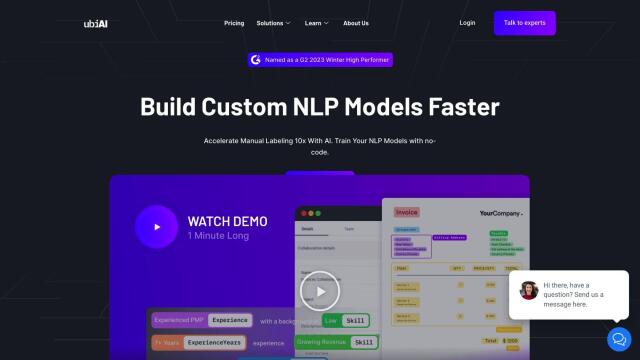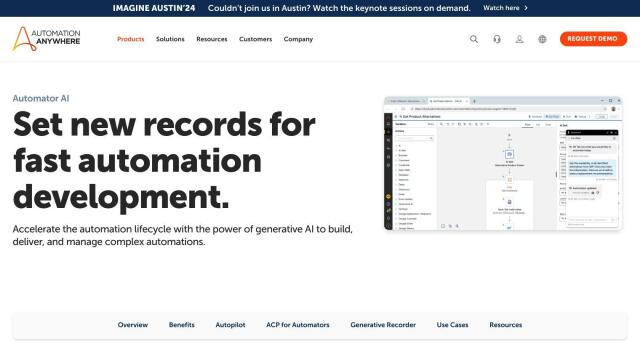Question: I'm looking for a solution that can automate document categorization, data extraction, and tracking to reduce manual errors and increase compliance.

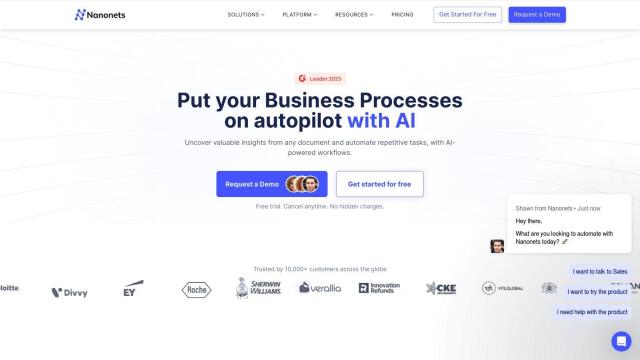
Nanonets
If you need an answer to automate things like document classification, data extraction and tracking, Nanonets is a good option. The AI-powered service is good at extracting information from unstructured data in a variety of sources, including documents, emails, tickets and databases. It can extract data without a template, enrich data, use decision engines and export data in different formats. Nanonets has compliance with standards like GDPR, SOC 2 and HIPAA, so it's good for companies in finance, manufacturing and health care.


ABBYY
Another option is ABBYY, which uses AI, NLP and OCR to automate business processes. It's got intelligent document processing with high recognition accuracy, process intelligence and a low-code/no-code interface for citizen developers. ABBYY's custom-built AI models can handle different formats and languages, and it's good for automating document-heavy processes like accounts payable and customer onboarding.
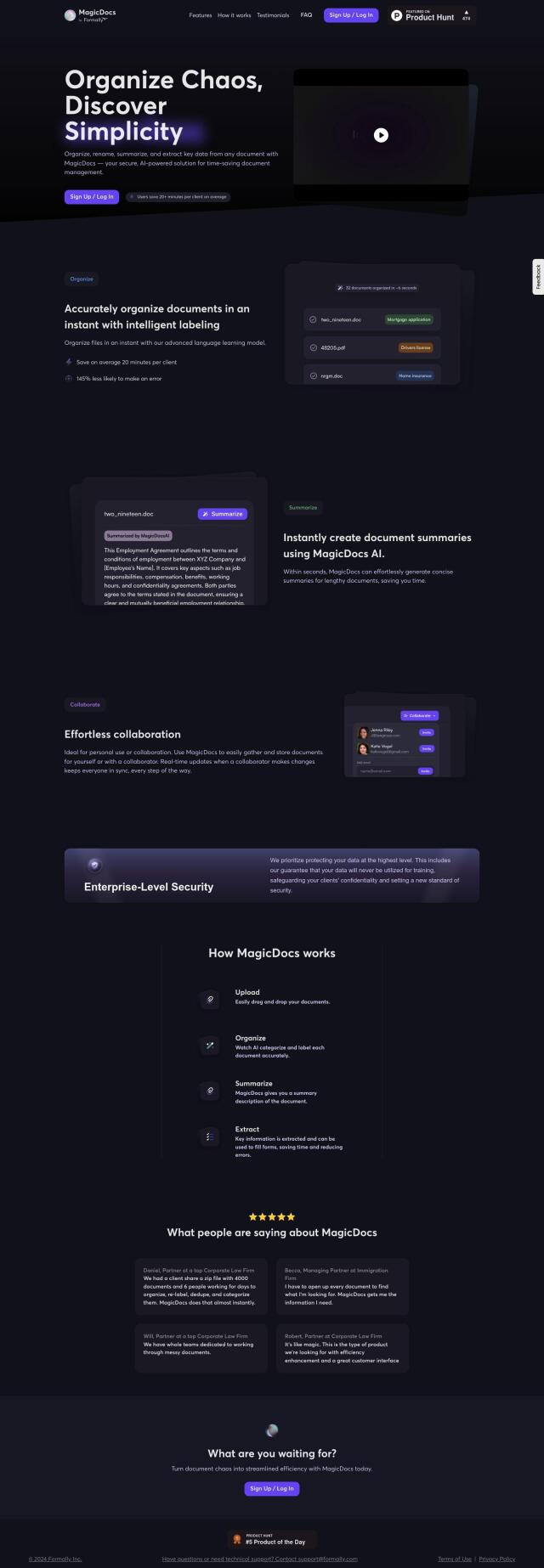

Magic Documents
Magic Documents is another option. The AI-powered tool classifies, renames, summarizes and extracts data from documents, cutting down on errors and increasing productivity. It uses the latest language models for labeling and organization, and it's got enterprise-grade security to protect confidentiality. Magic Documents is designed to automate document processing and streamline workflows, so it's good for individuals and teams.

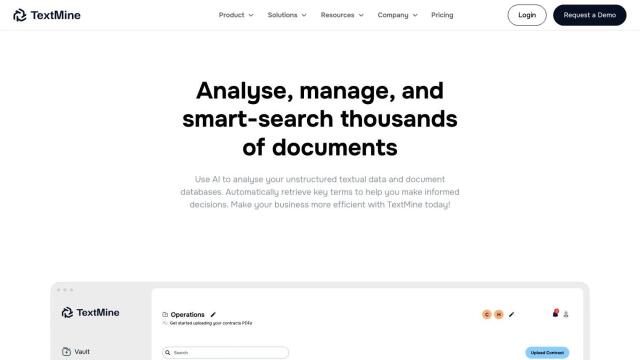
TextMine
If you want a more complete document management system, TextMine offers a knowledge base that gathers business-critical documents into a single operational layer. It converts unstructured data into structured datasets and offers advanced search and data extraction abilities. TextMine is designed to increase efficiency, reduce risk and improve decision-making by automating compliance checks and offering a searchable knowledge base.

